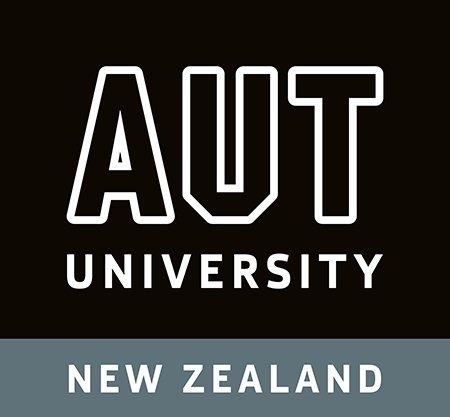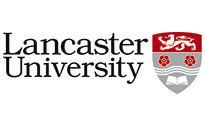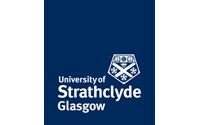
Life Cycle Costing (LCC) Optimization and Value Engineering
Course ID: 2510200101352EGI
Course Dates : 20/10/25 Course Duration : 5 Studying Day/s Course Location: London, UK
Language: Bilingual
Course Category: Professional and CPD Training Programs
Course Subcategories: Finance and Accounting Mastery
Course Certified By: * Projacs Academy
* Professional Training and CPD Programs
Certification Will Be Issued From :
KSA
Course Fees: £4,838.34
Vat Not Included in the price. VAT may vary depending on the country where the course or workshop is held.
Click to Pay
Date has passed please contact us Sales@e-s-hub.com
Course Information
Introduction
In an era where organizations are increasingly scrutinized for their financial decisions, the ability to optimize costs while maintaining value has become a cornerstone of sustainable business practices. Life Cycle Costing (LCC) and Value Engineering (VE) represent two interrelated methodologies that empower professionals to make informed decisions across the entire lifecycle of a product, project, or asset. These tools are not merely cost-saving measures but strategic frameworks that align with broader organizational goals such as sustainability, efficiency, and innovation. For industries ranging from construction and manufacturing to healthcare and technology, mastering these methodologies can lead to significant competitive advantages.
Despite their potential, many organizations struggle to implement LCC and VE effectively due to gaps in knowledge, insufficient integration into decision-making processes, or a lack of standardized practices. For instance, a 2021 study by the International Council on Systems Engineering (INCOSE) highlighted that only 30% of companies utilize LCC systematically, often leading to suboptimal resource allocation and missed opportunities for long-term savings. This course addresses these challenges by providing participants with a comprehensive understanding of LCC optimization and VE principles, equipping them with practical tools to bridge the gap between theory and application.
The relevance of LCC and VE extends beyond traditional cost management. By considering costs over the entire lifecycle of an asset—from design and acquisition to operation, maintenance, and disposal—organizations can achieve greater transparency and accountability in their financial planning. Take, for example, the case of a large-scale infrastructure project in Scandinavia, where applying LCC principles during the design phase resulted in a 20% reduction in operational costs over 20 years. Such outcomes underscore the transformative potential of these methodologies when applied strategically.
Value Engineering complements LCC by focusing on maximizing functionality while minimizing costs. Rooted in the principles of functional analysis, VE encourages cross-disciplinary collaboration to identify innovative solutions without compromising quality or performance. A notable example is the redesign of a consumer electronics product line by a global manufacturer, which reduced material costs by 15% while enhancing user satisfaction through improved ergonomics. This synergy between cost optimization and value creation forms the core of this course’s curriculum.
Professionals who master LCC and VE gain a distinct edge in their careers, as they are better equipped to contribute to their organization’s bottom line and strategic objectives. On an individual level, acquiring expertise in these areas enhances problem-solving skills, fosters creativity, and positions practitioners as key contributors to high-impact projects. For organizations, the benefits include improved profitability, enhanced sustainability, and a stronger alignment with regulatory requirements and industry standards.
This course is designed to provide a structured yet flexible learning experience, combining theoretical insights with hands-on exercises and real-world case studies. Participants will explore established frameworks such as ISO 15686 (Building and Constructed Assets – Service Life Planning) and SAVE International’s Value Methodology Standard, ensuring they leave with actionable strategies tailored to their specific contexts. Whether you are navigating complex capital investments or seeking ways to enhance operational efficiency, this program offers the tools and knowledge needed to drive meaningful change.
Objectives
By attending this course, participants will be able to:
Analyze the principles of Life Cycle Costing and apply them to evaluate the total cost of ownership for assets and projects.
Design value engineering studies using systematic approaches such as Function Analysis System Technique (FAST).
Evaluate trade-offs between cost, performance, and sustainability to recommend optimal solutions.
Implement LCC models using software tools and interpret results to inform decision-making.
Apply best practices for integrating LCC and VE into organizational workflows and procurement processes.
Assess compliance with relevant industry standards and regulations related to lifecycle costing and value engineering.
Develop actionable strategies to communicate the benefits of LCC and VE to stakeholders and secure buy-in.
Who Should Attend?
This course is ideal for:
Project managers, engineers, and procurement specialists responsible for managing costs and optimizing resources.
Financial analysts and accountants seeking to enhance their understanding of long-term cost implications.
Sustainability officers and environmental consultants focused on reducing lifecycle impacts.
Executives and decision-makers aiming to align cost management with strategic goals.
Professionals in construction, manufacturing, healthcare, and IT sectors where lifecycle considerations are critical.
These groups will find the course invaluable as it bridges the gap between technical expertise and financial acumen, enabling them to deliver higher-value outcomes. The content is suitable for intermediate learners with foundational knowledge of project management or finance, though beginners with a strong interest in cost optimization are also welcome.
Training Method
• Pre-assessment
• Live group instruction
• Use of real-world examples, case studies and exercises
• Interactive participation and discussion
• Power point presentation, LCD and flip chart
• Group activities and tests
• Each participant receives a 7” Tablet containing a copy of the presentation, slides and handouts
• Post-assessment
Program Support
This program is supported by:
* Interactive discussions
* Role-play
* Case studies and highlight the techniques available to the participants.
Daily Agenda
The course agenda will be as follows:
• Technical Session 08.30-10.00 am
• Coffee Break 10.00-10.15 am
• Technical Session 10.15-12.15 noon
• Coffee Break 12.15-12.45 pm
• Technical Session 12.45-02.30 pm
• Course Ends 02.30 pm
Course Outlines
Foundations of Life Cycle Costing
Introduction to Life Cycle Costing: Definition, scope, and importance.
Key components of LCC: Acquisition, operation, maintenance, and disposal costs.
Overview of industry standards (e.g., ISO 15686).
Case study: Successful implementation of LCC in infrastructure projects.
Day 2:
Tools and Techniques for LCC Optimization
Data collection and analysis methods for accurate LCC modeling.
Using software tools for LCC calculations (e.g., Excel, specialized LCC platforms).
Sensitivity analysis and risk assessment in LCC.
Workshop: Build an LCC model for a hypothetical project.
Day 3:
Fundamentals of Value Engineering
Principles and history of Value Engineering.
The Value Methodology framework: Information, Speculation, Evaluation, Development, Presentation phases.
Functional analysis and FAST diagramming.
Group exercise: Conduct a mini VE study.
Day 4:
Integrating LCC and VE
Aligning LCC and VE for maximum impact: Synergies and challenges.
Balancing cost, performance, and sustainability in decision-making.
Best practices for stakeholder engagement and communication.
Real-world example: Redesigning a manufacturing process using LCC and VE.
Day 5:
Advanced Applications and Future Trends
Emerging trends in LCC and VE: Digital twins, AI, and predictive analytics.
Regulatory requirements and compliance considerations.
Action planning: Developing an LCC/VE roadmap for your organization.
Final Q&A and certification ceremony.


















































